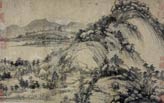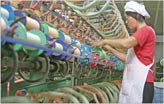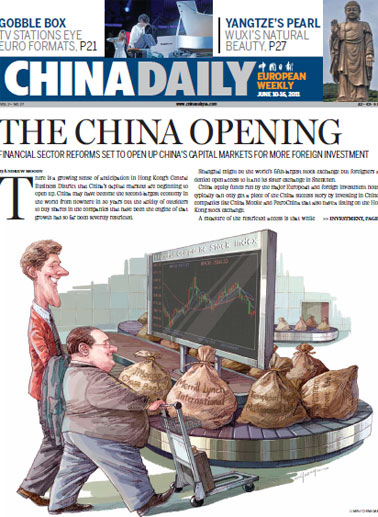Foreign and Military Affairs
Trade ties blossom as govt contacts increase
Updated: 2011-06-15 07:19
By Wang Xing (China Daily)
Since its establishment in 1992, around the same time as China was establishing ties with the newly independent former Soviet republics of Central Asia, Xinjiang Sanbao has risen from a small cross-border barter trade firm to a conglomerate whose trade volume reached $871 million last year.
|
||||
The company's business now ranges from petrochemicals to biological products.
"The economies of China and Central Asia are quite complementary. Central Asia's economic development is much like that of China in the 1980s," said Kang Heping, chairman of Xinjiang Sanbao.
Competitively priced Chinese products and Chinese investment are in great demand in the former Soviet republics of Central Asia.
Kazakhstan, Kyrgyzstan, Tajikistan and Uzbekistan used to serve as raw material suppliers for the Soviet Union and relied heavily on Moscow for light industry products, daily necessities and agricultural products.
But with the breakup of the Soviet Union, supplies of these goods dried up and many in the region started doing business with neighboring China.
According to official figures, China's trade with Russia, Kazakhstan, Kyrgyzstan, Tajikistan and Uzbekistan reached $86.8 billion last year, a more than seven-fold increase over 2001.
This has given birth to many trade companies in northwestern China's Xinjiang Uygur autonomous region, such as Xinjiang Guorui Economic and Trading Co Ltd, Xinjiang Bayi Steel International Trade Co Ltd and Xinjiang Yema Economy & Trade Co Ltd.
Chinese companies target the needs of Central Asian customers and find capable Chinese suppliers to meet those needs.
"Doing business here requires speed because the environment changes every minute," said Chen Zhifeng, chairman of Xinjiang Yema, one of the biggest trade companies in Xinjiang.
"We will not ponder an idea for three months and then do it. We need to think while we are doing it," he added.
Chen said his company's business witnessed tremendous growth last year as China's ties with Central Asia got even stronger.
According to figures from the government of the Xinjiang Uygur autonomous region, its trade volume with Central Asia reached $4.48 billion in the first quarter of this year, an increase of 65 percent over the same period last year. Trade with Kazakhstan reached $2.7 billion, up 60.3 percent year-on-year.
Mao Weihua and He Wei in Xinjiang contributed to this story.
E-paper

Pearl on the Yangtze
Wuxi is considered a town of natural beauty and its motto is "city of water and warmth".
Prose and consternation
Riding on a mystery train
Way of a warrior
Specials

When two are one
After a separation of 360 years, Huang Gongwang's famous Dwelling in the Fuchun Mountains has been made whole again.

Wealth of difference
Rich coastal areas offer contrasting ways of dealing with country's development

Seal of approval
The dying tradition of seal engraving has now become a UNIVERSITY major



